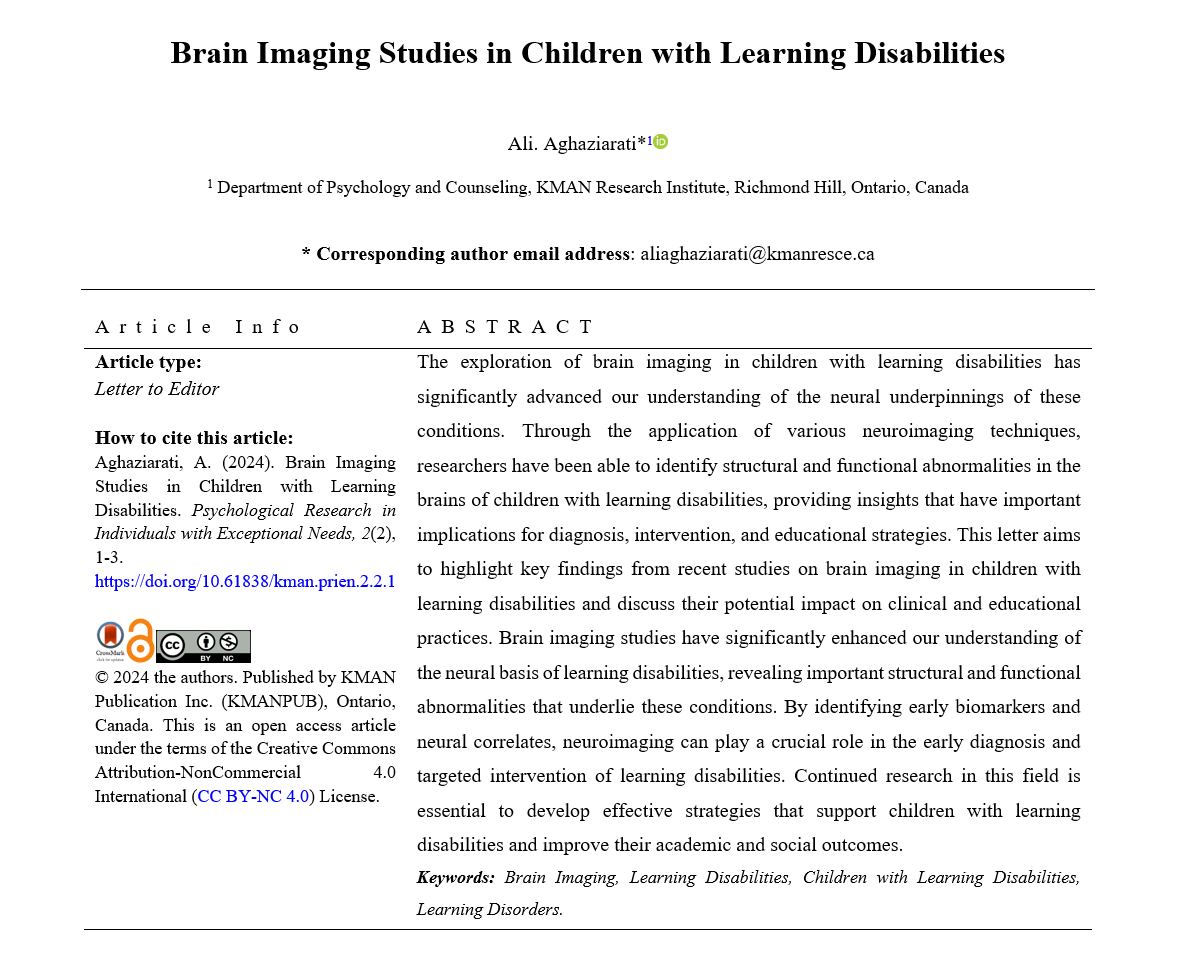Brain Imaging Studies in Children with Learning Disabilities
DOI:
https://doi.org/10.61838/kman.prien.2.2.1Keywords:
Brain Imaging, Learning Disabilities, Children with Learning Disabilities, Learning DisordersAbstract
The exploration of brain imaging in children with learning disabilities has significantly advanced our understanding of the neural underpinnings of these conditions. Through the application of various neuroimaging techniques, researchers have been able to identify structural and functional abnormalities in the brains of children with learning disabilities, providing insights that have important implications for diagnosis, intervention, and educational strategies. This letter aims to highlight key findings from recent studies on brain imaging in children with learning disabilities and discuss their potential impact on clinical and educational practices. Brain imaging studies have significantly enhanced our understanding of the neural basis of learning disabilities, revealing important structural and functional abnormalities that underlie these conditions. By identifying early biomarkers and neural correlates, neuroimaging can play a crucial role in the early diagnosis and targeted intervention of learning disabilities. Continued research in this field is essential to develop effective strategies that support children with learning disabilities and improve their academic and social outcomes.
Downloads

Downloads
Additional Files
Published
Issue
Section
License

This work is licensed under a Creative Commons Attribution-NonCommercial 4.0 International License.





